Lucia D’Acunto | TNO | Wednesday, June 24, 2020 | 14:00 (CET, 12:00 UTC) | online (registration required for external attendees)
Abstract: In this talk, I will present the recent advancements on 5G for what concerns support for “the media vertical sector”, i.e., use cases involving the transmission of audiovisual content. I will begin by introducing the research that TNO has conducted on this topic in the past few years, starting with the H2020 TRIANGLE project, were we first adapted network orchestration to “communicate” with media orchestration components, such as a DASH Aware Network Element (DANE). Then, I will explain how we created media-specific 5G slices in the context of the H2020 5GINFIRE project, and what benefits media service providers can expect. I will further discuss about the advantages that edge computing offers to video production, based on our results from the H2020 FLAME project. Finally, I will give an overview of the standardization activities around this topic. I will conclude my talk with an outlook on future developments and offer some reflections on what researchers, telecom operators and service providers can expect.
 Bio: Lucia D’Acunto received her PhD in 2012 from Delft University of Technology, the Netherlands, with a thesis on video streaming over peer-to-peer networks. She now works as a senior research scientist at TNO, focusing on video distribution and on the impact of future internet architectures (e.g. ICN, SDN and 5G) on it. She has led and is leading various European research projects on these topics, most notably the open call projects from the European Projects TRIANGLE, 5GINFIRE and FLAME. Since 2016, Lucia is an active participant and contributor to the 3GPP SA4 group, which focusses on mobile and 5G standardization for media applications. Lucia also serves in the organizing committees of several international conferences, usually in the roles of program chair or demo chair, and in the program committees. Lucia also regularly advises European operators on network and TV technologies and contributes to 5GPPP and NEM visions on the 5G Media Vertical and pilots. Lucia has published her research in several papers and journals and holds more than 15 patent applications.
Bio: Lucia D’Acunto received her PhD in 2012 from Delft University of Technology, the Netherlands, with a thesis on video streaming over peer-to-peer networks. She now works as a senior research scientist at TNO, focusing on video distribution and on the impact of future internet architectures (e.g. ICN, SDN and 5G) on it. She has led and is leading various European research projects on these topics, most notably the open call projects from the European Projects TRIANGLE, 5GINFIRE and FLAME. Since 2016, Lucia is an active participant and contributor to the 3GPP SA4 group, which focusses on mobile and 5G standardization for media applications. Lucia also serves in the organizing committees of several international conferences, usually in the roles of program chair or demo chair, and in the program committees. Lucia also regularly advises European operators on network and TV technologies and contributes to 5GPPP and NEM visions on the 5G Media Vertical and pilots. Lucia has published her research in several papers and journals and holds more than 15 patent applications.

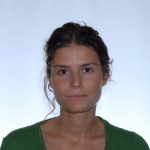 Bio: Laura Toni received the M.S. and Ph.D. degrees, both in electrical engineering, from the University of Bologna, Bologna, Italy, in 2005 and 2009, respectively. In 2007, she was a Visiting Scholar at the University of California at San Diego (UCSD), San Diego, CA, USA, and since 2009, she has been a frequent visitor to the UCSD, working on media coding and streaming technologies. Between 2009 and 2011, she was with the Tele-Robotics and Application Department, Italian Institute of Technology, investigating wireless sensor networks for robotics applications. In 2012, she was a Postdoctoral Fellow at UCSD, and between 2013 and 2016, she was a Postdoctoral Fellow in the Signal Processing Laboratory (LTS4) at École Polytechnique Fédérale de Lausanne, Lausanne, Switzerland. Since July 2016, she has been a Lecturer in the Electronic and Electrical Engineering Department, University College London (UCL), U.K. Her research mainly involves interactive multimedia systems, decision-making strategies under uncertainty, large-scale signal processing, and communications. She received the UCL Future Leadership Award in 2016, the ACM Best 10% Paper Award in 2013, and the IEEE/IFIP Best Paper Award in 2012.
Bio: Laura Toni received the M.S. and Ph.D. degrees, both in electrical engineering, from the University of Bologna, Bologna, Italy, in 2005 and 2009, respectively. In 2007, she was a Visiting Scholar at the University of California at San Diego (UCSD), San Diego, CA, USA, and since 2009, she has been a frequent visitor to the UCSD, working on media coding and streaming technologies. Between 2009 and 2011, she was with the Tele-Robotics and Application Department, Italian Institute of Technology, investigating wireless sensor networks for robotics applications. In 2012, she was a Postdoctoral Fellow at UCSD, and between 2013 and 2016, she was a Postdoctoral Fellow in the Signal Processing Laboratory (LTS4) at École Polytechnique Fédérale de Lausanne, Lausanne, Switzerland. Since July 2016, she has been a Lecturer in the Electronic and Electrical Engineering Department, University College London (UCL), U.K. Her research mainly involves interactive multimedia systems, decision-making strategies under uncertainty, large-scale signal processing, and communications. She received the UCL Future Leadership Award in 2016, the ACM Best 10% Paper Award in 2013, and the IEEE/IFIP Best Paper Award in 2012.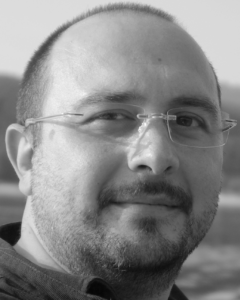 CV: Giovambattista Ianni is a full professor of Computer Science in the Department of Mathematics and Computer Science at the University of Calabria, Italy. Prof. Ianni’s current research interests include knowledge representation, reasoning, and coupling of hybrid systems. He recently focused his research interests on Artificial Intelligence in videogames with particular attention to the issue of complex and time-consuming incremental reasoning in real-time contexts. He has contributed to the DLV system and the DLVHEX system, especially dealing with the issue of dealing with, often non-symbolic, external information to knowledge bases. He has been involved in several national and international research projects and has been acknowledged with research awards such as the ICLP Test-of-time award 2018 and the Artificial Intelligence Journal Prominent Paper Award 2013.
CV: Giovambattista Ianni is a full professor of Computer Science in the Department of Mathematics and Computer Science at the University of Calabria, Italy. Prof. Ianni’s current research interests include knowledge representation, reasoning, and coupling of hybrid systems. He recently focused his research interests on Artificial Intelligence in videogames with particular attention to the issue of complex and time-consuming incremental reasoning in real-time contexts. He has contributed to the DLV system and the DLVHEX system, especially dealing with the issue of dealing with, often non-symbolic, external information to knowledge bases. He has been involved in several national and international research projects and has been acknowledged with research awards such as the ICLP Test-of-time award 2018 and the Artificial Intelligence Journal Prominent Paper Award 2013.
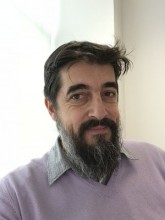

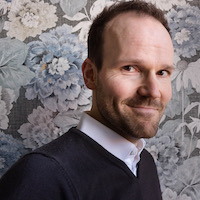 Lebenslauf: Studium des Gymnasiallehramts (2008) und Diplommathematik (2009), Promotion zum Dr. phil (2014) an der Universität Bielefeld 2014, seit 2015 Juniorprofessur für Didaktik der Mathematik an der Universität Osnabrück, 2018 Habilitationsäquivalenz durch positive Evaluation, Arbeitsgebiete: Analyse mathematischer Lernprozesse aus multimodaler Perspektive; Bedeutung von Gesten, Notizen und Mitschriften für mathematikbezogene Lern- und Kommunikationsprozesse, Grundvorstellungen mathematischer Inhalte (insbes. im Bereich der Trigonometrie), Übergang Schule-Hochschule, Mathematik und digitale Medien.
Lebenslauf: Studium des Gymnasiallehramts (2008) und Diplommathematik (2009), Promotion zum Dr. phil (2014) an der Universität Bielefeld 2014, seit 2015 Juniorprofessur für Didaktik der Mathematik an der Universität Osnabrück, 2018 Habilitationsäquivalenz durch positive Evaluation, Arbeitsgebiete: Analyse mathematischer Lernprozesse aus multimodaler Perspektive; Bedeutung von Gesten, Notizen und Mitschriften für mathematikbezogene Lern- und Kommunikationsprozesse, Grundvorstellungen mathematischer Inhalte (insbes. im Bereich der Trigonometrie), Übergang Schule-Hochschule, Mathematik und digitale Medien.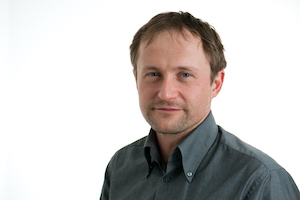 CV: Dr. Raimund Schatz is Senior Scientist at the AIT Austrian Institute of Technology, Center for Technology Experience, where he coordinates the Research Field „Experience Measurement“. Furthermore, he is Post-Doctoral researcher at the ATHENA Christian-Doppler Laboratory (ITEC, AAU). Until 2015 he was Key Researcher and Area Manager at the Telecommunications Research Center Vienna, Department of User-centered Interaction, Services, and Systems Quality. Raimund Schatz holds an Msc. in Telematics (TU-Graz), a PhD in Informatics (TU-Vienna), as well as an MBA and an MSc. from Open University Business School (UK). He is (co-)author of more than 130 publications in the areas of Quality of Experience, Service Quality, HCI and Pervasive Computing. Furthermore, he is or was actively involved in a number of QoE and HCI-related EU projects and networking activities, including SHOTPROS (H2020), Optiband (FP7), CELTIC QuEEN and COST Actions IC1003 Qualinet and IC1304 ACROSS, as well as the organization of various QoE-related conferences and workshops (e.g. QoENAM 2014, QoE-FI 2016, QCMAN 2016, QoE-Management 2017, QoMEX 2018, QoMEX 2019, etc.).
CV: Dr. Raimund Schatz is Senior Scientist at the AIT Austrian Institute of Technology, Center for Technology Experience, where he coordinates the Research Field „Experience Measurement“. Furthermore, he is Post-Doctoral researcher at the ATHENA Christian-Doppler Laboratory (ITEC, AAU). Until 2015 he was Key Researcher and Area Manager at the Telecommunications Research Center Vienna, Department of User-centered Interaction, Services, and Systems Quality. Raimund Schatz holds an Msc. in Telematics (TU-Graz), a PhD in Informatics (TU-Vienna), as well as an MBA and an MSc. from Open University Business School (UK). He is (co-)author of more than 130 publications in the areas of Quality of Experience, Service Quality, HCI and Pervasive Computing. Furthermore, he is or was actively involved in a number of QoE and HCI-related EU projects and networking activities, including SHOTPROS (H2020), Optiband (FP7), CELTIC QuEEN and COST Actions IC1003 Qualinet and IC1304 ACROSS, as well as the organization of various QoE-related conferences and workshops (e.g. QoENAM 2014, QoE-FI 2016, QCMAN 2016, QoE-Management 2017, QoMEX 2018, QoMEX 2019, etc.).